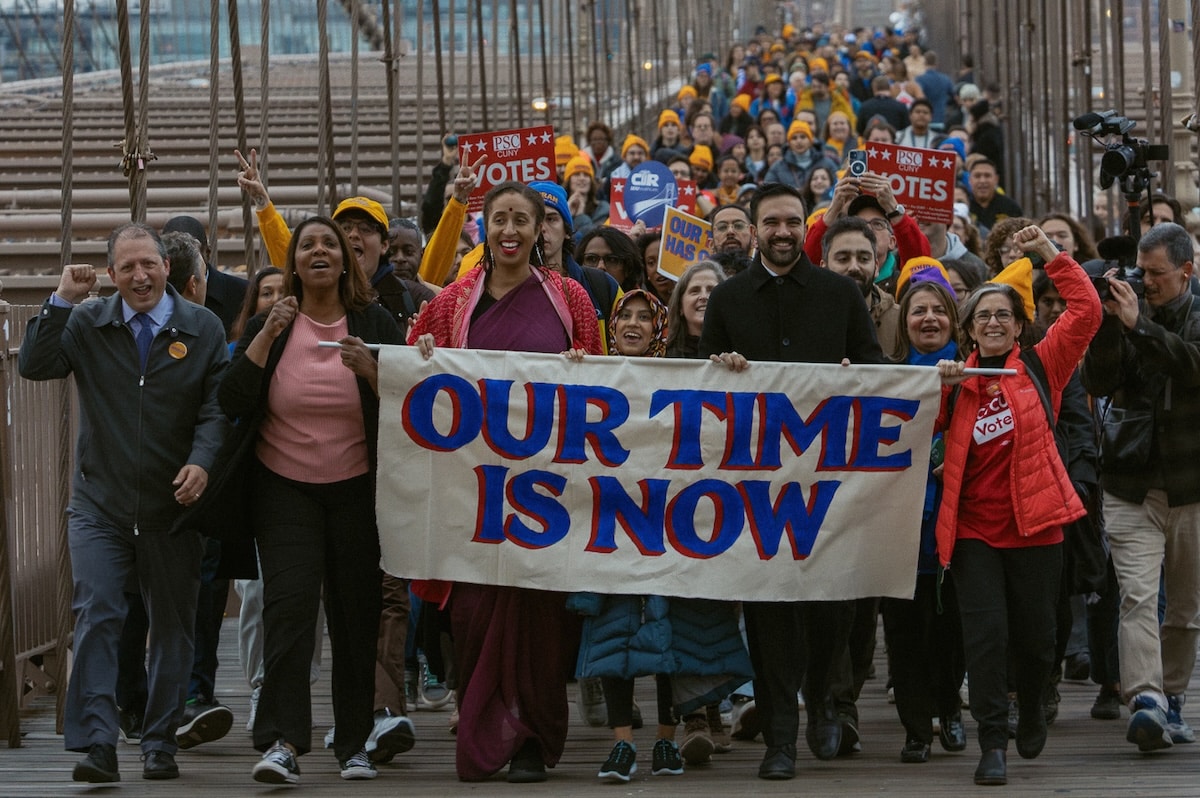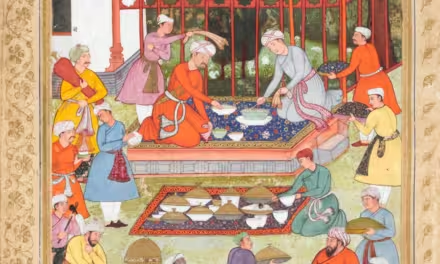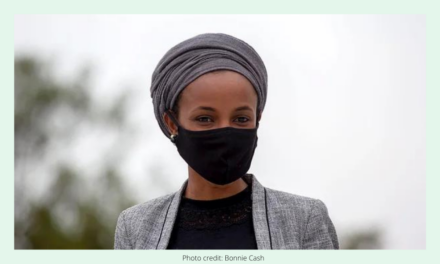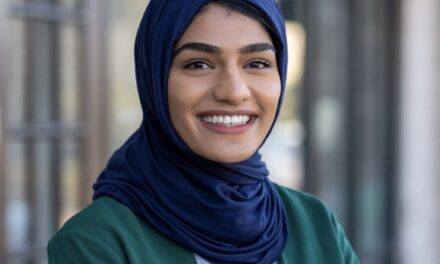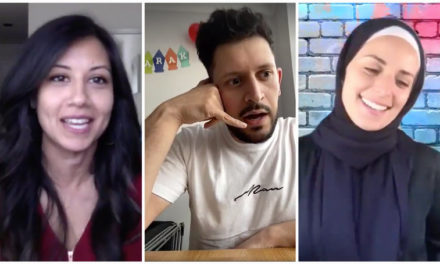Zohran Mamdani and supporters march over the Brooklyn Bridge in New York City on November 3, 2025. (Photo: https://x.com/zohrankmamdani)
When Columbia University students were smeared by New York’s political class and brutalized by the New York Police Department for protesting the genocide in Gaza, few of them probably imagined how the tides would turn in New York City just one year later.
Yet those young people and so many other New Yorkers did the seemingly impossible by turning out to vote in massive numbers and electing a Muslim mayor who recognizes and opposes the genocide they protested to lead New York City. His election is, in many ways, their victory too.
Mamdani won despite facing a barrage of anti-Muslim hate for touching the same third rail of American politics that college students touched: criticizing the Israeli apartheid government. His victory over Andrew Cuomo and an array of anti-Palestinian, anti-Muslim corporations, billionaires and establishment politicians was not just a political upset. It was a historic turning point in the struggle for representation and an unprecedented rebuke of Islamophobia and anti-Palestinian politics.
Mamdani was not alone in making such history. Virginia also elected state senator Ghazala Hashmi to serve as the next Lt. Governor, making her the first Muslim woman elected to statewide office in the United States.
Between Mayor-Elect Mamdani, Lt. Governor Hashmi, Attorney General Keith Ellison in Minnesota, and Reps. Andre Carson, Rashida Tlaib, Ilhan Omar and Lateefah Simon in Congress, American Muslims have made incredible progress that would have seemed impossible in 2008, when the Obama campaign infamously shepherded visibly Muslim women offstage at a campaign event.
For American Muslims, November 4, 2025, was a long time coming. After decades of civic engagement and patient perseverance amid unprecedented bigotry, American Muslims are no longer a political hot potato or beggars asking for a seat at political tables. They are increasingly sitting at those tables, even the head of table.
This progress has come despite—and, in many ways, because of—the deep currents of anti-Muslim bigotry that have tried to drown our community. For over thirty years, we have faced a toxic alliance of anti-Muslim bigots who hate the Islamic faith and anti-Palestinian lobby groups who fear the prospect of a politically powerful Muslim community ending unconditional U.S. for Israel’s oppression of the Palestinian people.
But their prejudice forged a new kind of resilience. It compelled our community to organize, to build lasting institutions, and to engage in politics against the odds, standing up for justice whether in our neighborhoods or in the halls of power.
This election was a rebuke to those who believe that American Muslims have no place in their own nation and those who have spent years suppressing politicians who oppose the oppression of the Palestinian people.
The message is unmistakable: the billionaires who bankroll anti-Muslim bigotry, the pundits who profit from division, and the politicians who weaponize fear are not invincible. Voters still matter. But we must not mistake progress for in one election for permanence. When movements for justice rise, those invested in injustice often respond with greater desperation.
That is why our work to advocate for justice here and abroad must continues, regardless of who is in office. Politicians will not save us or solve our nation’s problems on their own.
American Muslims do not seek privilege. We seek an America that protects equality under law. We seek an America that lives up to its founding ideals of religious freedom, free speech and civil rights. We seek an America that upholds democracy here at home and human rights abroad, including in Palestine.
The results of this election show what is possible when principle meets perseverance and faith meets action. The next generation has seen the truth. The future of America can belong to those who believe that justice is universal—God willing.
By Nihad Awad
Nihad Awad is the National Executive Director and co-founder of the Council on American-Islamic Relations (CAIR), the largest Muslim civil rights and advocacy organization in the United States.
